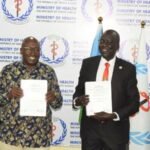Political Landscape and Governance Changes
The political landscape of South Sudan has undergone significant transformations in recent years, largely influenced by a combination of governmental changes and international relations. Following its independence in 2011, South Sudan faced a protracted civil war that severely affected its governance structure and social fabric. However, since the revitalized peace agreement in 2018, efforts have been made to establish a more inclusive government, aimed at reflecting the diverse ethnic composition of the country. This agreement has prompted a shift in the political dynamics, leading to the formation of a transitional unity government in February 2020, comprising various factions of the opposition and the ruling party. This collaborative governance model is crucial for promoting stability and ensuring broader representation.
International relations play a pivotal role in shaping South Sudan’s political environment. External influences, particularly from regional powers and global entities, have a profound impact on the nation’s governance policies. International organizations, including the United Nations and the African Union, have provided essential support in mediating conflicts and advocating for democratic governance. Sanctions and diplomatic interventions by Western nations continue to pressurize officials to adhere to human rights standards and address corruption concerns, fostering a political atmosphere conducive to reform.
Despite these positive developments, challenges remain. The process of establishing lasting peace is compounded by sporadic violence, economic instability, and a lack of public trust in government institutions. The leadership must prioritize addressing these issues by implementing effective governance practices that enhance transparency and accountability. As South Sudan navigates its political landscape, the ongoing evolution of governance and public participation is essential for building a resilient society that can withstand future challenges. This journey towards stability not only influences political structures but significantly affects the everyday lives of South Sudanese citizens.
Socioeconomic Updates and Humanitarian Efforts
South Sudan continues to experience significant socioeconomic fluctuations as the country grapples with the aftermath of prolonged conflict and ongoing political instability. The economy has shown some signs of recovery, primarily due to oil production, which remains a critical income source. However, the reliance on oil exposes the economy to global price volatility, rendering it vulnerable to external shocks. Efforts to diversify the economy have been minimal, with agricultural development being a key area identified for potential growth.
Agriculture is vital not only for food security but also for economic sustainability. The South Sudanese government, alongside international partners, has put forth initiatives aimed at enhancing agricultural practices and increasing crop yield. Programs focusing on sustainable farming techniques and supporting local farmers are being prioritized to tackle the dual challenges of food insecurity and poverty. These agricultural initiatives are crucial, especially in the face of recurrent flooding and climate-related adversities that threaten crop production.
Infrastructure development remains a pressing issue in South Sudan, as the lack of adequate roads, schools, and healthcare facilities severely hampers access to essential services. Recent governmental efforts, with backing from humanitarian organizations, aim to improve transport networks and expand access to education and health services. Numerous NGOs are actively involved in providing humanitarian aid, improving water supply systems, and addressing health crises exacerbated by malnutrition and disease outbreaks.
Humanitarian efforts are also crucial in responding to the ongoing challenges faced by the population, particularly in zones affected by conflict. The combined efforts of international donors and local organizations are aimed at alleviating the dire humanitarian situation, improving living conditions for millions. Addressing urgent needs such as food security, healthcare access, and basic infrastructure are pivotal in supporting the resilience of the South Sudanese community.


